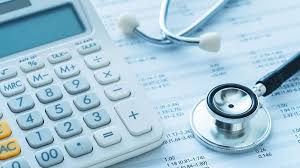Things to Know for Becoming a Medical Coder (Medical Coding Certification)

Foundamental Knowledge for Medical Coding Certification
Obtaining a medical coding certification is a crucial step towards a successful career in the healthcare industry. Medical coding professionals play a vital role in accurately translating medical diagnoses, procedures, and services into alphanumeric codes that are essential for insurance reimbursement, medical record documentation, and data analysis. The certification process involves comprehensive training and rigorous examinations to ensure proficiency in the complex field of medical coding.
To pursue a medical coding certification, individuals must first acquire a solid foundation in medical terminology, anatomy, and physiology. This knowledge is essential for accurately assigning codes based on the medical documentation provided by healthcare providers. Understanding the intricacies of diseases, procedures, and medical terminology is critical in ensuring accurate coding, which ultimately impacts patient care, revenue generation, and compliance.
Medical Coding Certification Programs
Once the foundational knowledge is acquired, individuals can choose from various certification programs offered by reputable organizations, such as the American Academy of Professional Coders (AAPC) and the American Health Information Management Association (AHIMA). These programs typically involve in-depth coursework, practical coding exercises, and preparation for certification examinations.
The certification examinations assess the knowledge and skills of aspiring medical coders through a series of multiple-choice questions and coding scenarios. These exams evaluate the individual's ability to accurately assign codes according to coding guidelines, maintain coding accuracy and integrity, and adhere to ethical and legal standards.
Achieving a medical coding certification not only demonstrates a high level of expertise but also opens doors to a wide range of career opportunities. Certified medical coders are in high demand in hospitals, clinics, insurance companies, and other healthcare settings. They play a crucial role in ensuring accurate healthcare documentation, revenue optimization, and compliance with regulatory requirements.
In conclusion, pursuing a medical coding certification is a significant undertaking that requires dedication, continuous learning, and a commitment to excellence. By obtaining certification, individuals can enhance their career prospects, contribute to the accuracy and efficiency of healthcare operations, and play a vital role in sustaining food safety in the healthcare industry.
